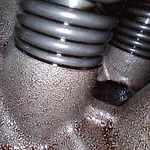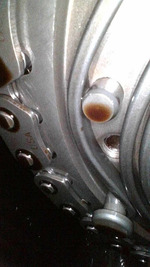Can’t believe we’ve kinda glossed over these details… in the past week we saw a valve train pic of an 80k mile engine that’s had synthetic API approved oils according to OLM that is heavily varnished, and we’ve also seen a 170k engine that’s had only 2 oil changes over the past 53k and it is essentially hot-tank clean inside while using an oil with no approvals.
I thought this would have generated more discussion, since this board’s goal is to help members choose correct oils to better protect their machines! Pics are below; 80k Trax on the left looks like it’s bathed in Werther’s caramel, and the 170k Dodge (!) is almost spotless. (And this is not a knock on the Trax owner who simply took API & Big 3 oils at their face value.)
I’d love to hear somebody explain how @High Performance Lubricants is the bad guy here for not chasing API approvals. If Trax OLM is 10k and $35 per oil change, and @wwillson is at 24-30k or beyond at ~$70 per oil change, how does using API oils make any sense?
I thought this would have generated more discussion, since this board’s goal is to help members choose correct oils to better protect their machines! Pics are below; 80k Trax on the left looks like it’s bathed in Werther’s caramel, and the 170k Dodge (!) is almost spotless. (And this is not a knock on the Trax owner who simply took API & Big 3 oils at their face value.)
I’d love to hear somebody explain how @High Performance Lubricants is the bad guy here for not chasing API approvals. If Trax OLM is 10k and $35 per oil change, and @wwillson is at 24-30k or beyond at ~$70 per oil change, how does using API oils make any sense?




